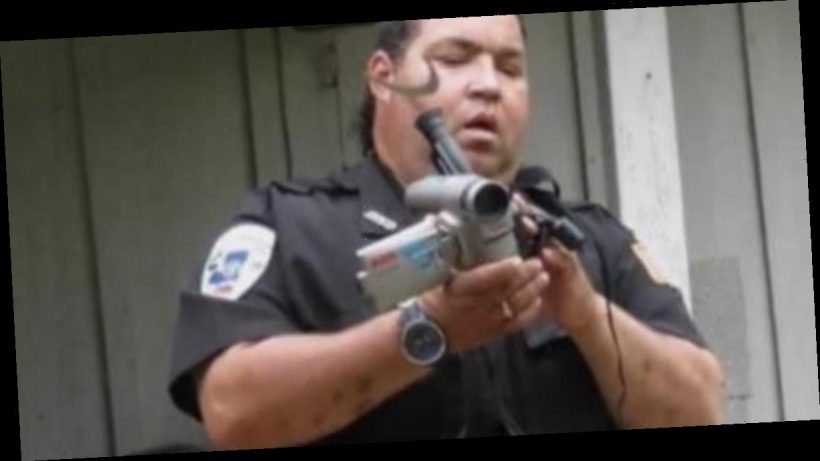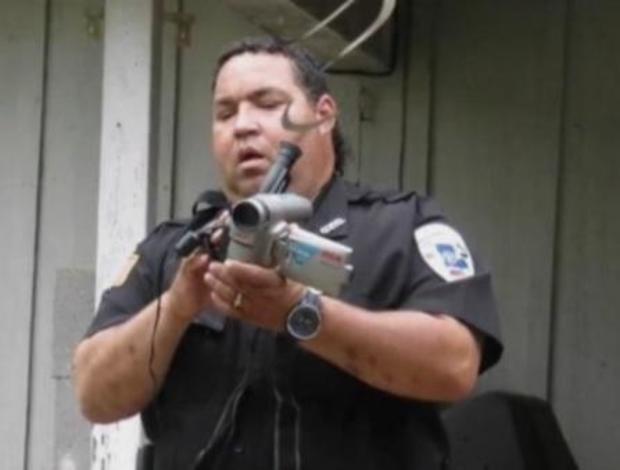The board of a small Louisiana cemetery that denied burial to a Black sheriff’s deputy held an emergency meeting Thursday and removed a whites-only provision from its sales contracts.
“When that meeting was over it was like a weight lifted off of me,” H. Creig Vizena, board president for Oaklin Springs Cemetery in southwest Louisiana, said Thursday night.
He said he was stunned and ashamed to learn two days earlier that the family of Allen Parish Sheriff’s Deputy Darrell Semien, who died Sunday, had been told he could not be buried at the cemetery near Oberlin because he was African American.
“It’s horrible,” Vizena told The Associated Press Thursday.
He said the board members removed the word “white” from a contract stipulation conveying “the right of burial of the remains of white human beings.”
Semien’s widow, Karla Semien, of Oberlin, told CBS Lafayette, Louisiana affiliate KLFY-TV,”It was just so much a slap in the face, a punch in the gut. It was just belittling him. You know, that we can’t bury him because he’s black.”
She told the station the family met with the woman who sold plots.
As she recalled to KLFY, “First me and one of my other sons got out of the car when she drove up, and he’s white, and she said she was sorry for our loss, and I told her, ‘Thank you.’ And before I could say anything else, the rest of them started coming out of the car, and she looked at them, and then she looked at me and says, ‘We’re going to have to have a discrepancy.’ She said, ‘We’re not going to be able to sell you a plot.'”
“To be told this is like we were nothing. He was nothing? He put his life on the line for them,” Semien remarked to KPLC-TV on Wednesday.
“My dad wasn’t any man, he was a phenomenal man,” daughter Shayla Semien told KATC-TV. “He was a police officer in this same community for 15 years. He was denied a place to lay because of the color of his skin.”
“I apologized and I’m still apologizing. … I am so sorry that this happened,” Vizena stressed to KLFY.
Despite the contract being signed by everyone who buys a plot, Vizena told the station cemetery board members said they’d never noticed it before.
“I’m sorry I have no better explanation for it than that,” he said, adding, “I can’t answer a question that I don’t know the answer to. I refuse to speculate on it. I just know that it was wrong and now it’s right.”
Vizena said when he told other members about the language, each one said it had to be fixed.
The offensive wording wasn’t in the cemetery association’s bylaws but only in sales contracts used since the cemetery was created in the late 1950s, Vizena said.
People tend to sign such things without reading them, he said.
He said a relative of his was the woman who told the family, and she was “relieved of her duties.”
Vizena said he was on his way home from work Tuesday when a deputy who had known Darrell Semien called to tell him about the rejection.
Vizena said he apologized to the family and offered one of his own plots in the small cemetery, which he estimated covers less than two acres. But, he said, the offer was turned down: The family said Semien, who was 55, couldn’t rest easily there.
Vizena said he believes Oaklin couldn’t have been the only cemetery with such segregationist holdovers. Cemetery associations throughout the South and the country should check their bylaws and contracts for such language, he said.
“People, please get out and look at your cemetery bylaws, ordinances in your towns, rules in your churches. Get out there and clean it up.”
He said to KLFY, “We can never change as a country until we wipe all that stuff out. We have no room for that.”
For Oaklin Springs Cemetery, he said, “It’s a stain that’s going to be on our cemetery and our community for a long time.”
But he said, he thinks his grandchildren will be able to say, “Hey, my pawpaw fixed that.”
Source: Read Full Article

